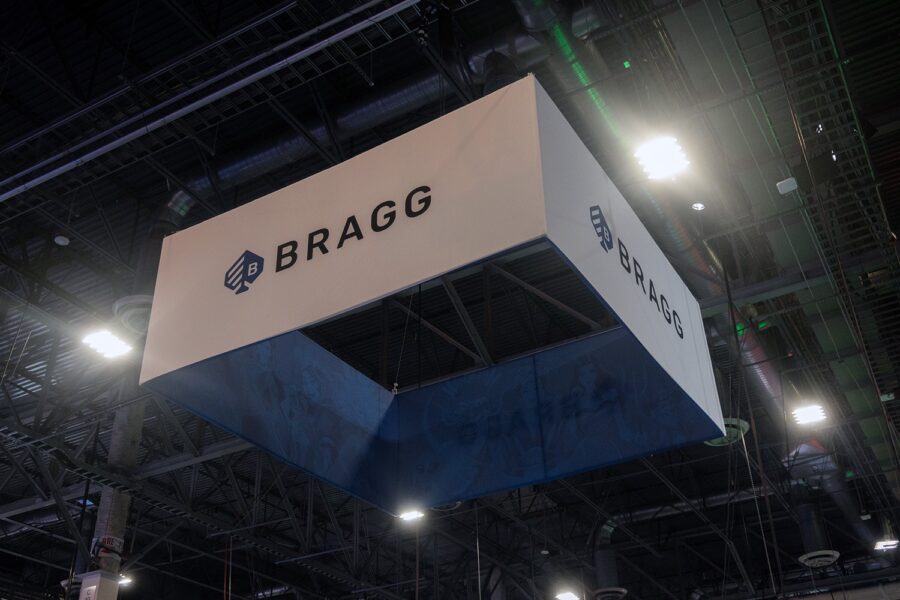Bragg Gaming Group expands West Virginia presence with Internet Vikings collaboration

Bragg Gaming has expanded its partnership with igaming hosting provider Internet Vikings through a new agreement in West Virginia.
The new deal will see Internet Viking supply two in-state data center environments: one for primary operations and one for disaster recovery. The latter is a mirror of the former and is ready for immediate activation in case of an emergency.
Both centers will ensure that Bragg’s systems remain fully compliant with West Virginia regulatory requirements while maintaining operational continuity.
Internet Vikings Chief Executive and Founder Rickard Vikström said, “Over the years working with Bragg this move was the right step forward for our partnership as they expand into West Virginia. Bragg can continue to focus on delivering exceptional gaming experiences while we handle the technical infrastructure.”
The collaboration in West Virginia expands on a partnership between the two companies that dates back to November 2022, when Internet Vikings supplied backup services to Bragg in New Jersey. Then, in 2023, the hosting provider supported Bragg’s Pennsylvania operations via its subsidiary Spin Games.
The latest expansion comes after Bragg Gaming reported a 7.1% first-quarter revenue increase earlier this year, boosted by US growth.
Abi Bray brings strong researching skills to the forefront of all of her writing, whether it’s the newest slots, industry trends or the ever changing legislation across the U.S, Asia and Australia, she maintains a keen eye for detail and a passion for reporting.
Verticals:
Sectors:
Topics:
Dig Deeper
The Backstory
Why Bragg’s West Virginia move matters now
Bragg Gaming’s latest step in West Virginia lands at the intersection of compliance pressure and growth opportunity. The company is deepening its reliance on Internet Vikings for in-state infrastructure that meets regulator demands for resiliency and data localization. By standing up a primary environment and a mirrored disaster recovery site inside the state, Bragg is aligning with a clear U.S. trend: operators and suppliers are hardening their tech stacks to minimize downtime, pass audits and scale in newly active markets.
The West Virginia buildout follows a multi-year pattern for both companies. Internet Vikings has steadily invested in licensed, in-state hosting footprints while Bragg has widened its U.S. distribution and content delivery capability. The pair first worked together on backup services in New Jersey, then expanded into Pennsylvania operations via Bragg’s Spin Games subsidiary. The new two-site setup in West Virginia formalizes that trajectory with redundancy that can switch over immediately if there is a disruption. The approach reflects the sector’s shift from piecemeal hosting to architected, state-by-state continuity.
The timing also matches a broader wave of market activity in West Virginia. Content aggregators, testing labs and hosting specialists have increased their presence there, signaling that the state’s igaming framework is drawing more suppliers. That concentration raises the bar on uptime and compliance, which makes Bragg’s mirrored deployment look less like an optional upgrade and more like table stakes.
The in-state hosting playbook spreads across the map
Internet Vikings’ footprint shows why Bragg’s bet on a partner strategy is pragmatic. The company has spent the past two years layering on state deployments for sportsbooks, platform providers and studios. Its expanded work with GAN Sports is a reference point. The hosting firm extended a multi-state collaboration into Arkansas after rolling out in Nevada, part of a 2022 agreement that targeted 15 states. That progression, detailed in the account of Internet Vikings extending its GAN partnership into Arkansas, underscores how repeatable in-state builds can shorten time to market for clients with multi-jurisdiction ambitions. The company also launched a pay-as-you-go cloud offering in Oct. 2024, a flexible model designed to speed deployments and absorb traffic spikes.
Studios are following the same blueprint. In New Jersey, Internet Vikings is supplying bare metal servers in Atlantic City to RubyPlay as the slot maker makes its U.S. push with Rush Street Interactive’s BetRivers. That move, described in Internet Vikings’ hosting deal with RubyPlay in New Jersey, shows how infrastructure decisions can make or break a content launch window. The message to suppliers is consistent: bring regulated-ready hosting to the state, then scale content once the pipes are proven.
Operators are applying the model too. Plannatech is using Internet Vikings’ VMware cloud hosting in Arizona to support Betcris, the group’s sportsbook. The arrangement, chronicled in Plannatech’s Arizona expansion through Internet Vikings, highlights how uptime and low-latency delivery have become central to market entries as handle grows. Arizona posted a $791.2 million handle in October not long after launch, and infrastructure partners now sell themselves on the ability to keep those flows uninterrupted.
West Virginia’s rising profile and the compliance bar
West Virginia has matured into a proving ground for suppliers seeking fast routes into regulated igaming. In recent months, certification and content pipelines have thickened, raising both the opportunity and the scrutiny. The arrival of eCogra, which secured approval to operate in the state effective Feb. 26, 2025, is a marker. The testing lab’s expansion, detailed in eCogra’s West Virginia launch, brings another recognized auditor into the market. That amplifies the need for demonstrable controls, from change management to incident response and disaster recovery testing.
Content is scaling alongside certification. SlotMatrix, the EveryMatrix aggregation platform, pushed its Wild Extravaganza title into West Virginia after runs in New Jersey and Michigan. The release, covered in SlotMatrix’s West Virginia expansion, showcases how suppliers are sequencing launches across licensed states to maximize reach and reuse integration work. For platform providers and hosts, that means absorbing new titles and promotional tools while keeping latency and uptime within regulator expectations.
Against this backdrop, Bragg’s mirrored data centers look like a hedge against the operational risks that come with more traffic and more auditors. A failover-ready posture can reduce outage windows from hours to minutes. It also signals to regulators and partners that business continuity plans are not theoretical. In a state that is attracting both new content and new testing oversight, that signal matters.
Causality: from multi-state momentum to local redundancy
The connective tissue across these moves is a shift from expansion for expansion’s sake to expansion with hardened infrastructure. Internet Vikings’ multi-state track record with GAN, RubyPlay and Plannatech suggests a rinse-and-repeat deployment model that shortens the time between licensing and revenue. As more clients pursue that path, the baseline expectation rises: in-state hosting, audited controls and instant failover become prerequisites for meaningful share, not differentiators.
Bragg’s decision to double down on the partner it used in New Jersey and Pennsylvania follows that logic. Each new state adds integration complexity, new monitoring obligations and unique regulator interfaces. Outsourcing the most sensitive layers—power, connectivity, storage, snapshots, recovery workflows—to a specialist reduces the chance that a localized disruption becomes a multi-state incident. It also frees Bragg to focus on distribution and game performance, which drive gross gaming revenue and, by extension, fees.
Meanwhile, the market’s front end is becoming more demanding. SlotMatrix is layering engagement tools like free spins, leaderboards and tournaments on top of its titles. Operators expect those features to work under load, which puts more stress on hosting. Add the presence of eCogra and other auditors and the stakes rise further. Logs must be accurate, alerts must route correctly and switchover tests must be documented.
What to watch next
Three threads bear watching. First, whether more suppliers adopt dual-site architectures as standard in states with active igaming. Mirrored environments cost more up front but reduce regulatory and reputational risk. Second, how pay-as-you-go cloud models, like the one Internet Vikings introduced ahead of its GAN expansion into Arkansas, change procurement. Flexible terms could speed pilots and accelerate broad rollouts once approvals land. Third, whether West Virginia’s recent activity becomes self-reinforcing. With eCogra now live and content aggregators pushing more titles, infrastructure investments may come in waves as suppliers modernize to keep pace.
Bragg’s West Virginia setup sits at the center of these forces. It is a bet that regulated growth rewards those who treat infrastructure as a first-order product decision. If the state continues to draw content and certification muscle, that bet could pay off by turning resilience into revenue.








